Fostering Inter-Generational Dialogue: Bridging the Gap Between Tarok Elders and Youth to Preserve Cultural Values.
- Home /
- blog post
Fostering Inter-Generational Dialogue: Bridging the Gap Between Tarok Elders and Youth to Preserve Cultural Values.
What’s intergenerational dialogue?
Intergenerational dialogue is a meeting of any kind that brings together individuals of different age brackets to co-create or co-plan an idea for multiple generations -Wikipedia
Intergenerational dialogues are interactive participatory forums that bring together older and younger people to agree, discuss or practice an idea(s) which are intended to be passed onto different generations -Zittas.B, 2024.
What is bridging the gap?
First of all, a gap is a lacuna or a space created in-between two or more bodies that should be interconnected to one another.
Bridging the gaps simply mean the act of closing the lacunas or space that separates a body or ideas to make is connectable.
What does it means to preserve cultural values?
Preservation is an act or the processes of keeping or sustaining something considered to be highly valuable alive, intact, unalloyed, without damage or decay.
Cultural values are tenacious beliefs system of what are considered right or wrong in a society, community or cultural environment one pays allegiance to.
Preserving cultural values therefore simply means the process of keeping, maintaining and sustaining of core values, beliefs system and traditions adopted by a culture one pays allegiance to.
INTRODUCTION
Haven understood the different variables or components of our topic tonight, it’s paramount to merge the ideas together in order to form the basis of my presentation. In essence, tonight I will be discussing with you the different forms of intergenerational dialogues that when properly fostered will bring about sustainability and preservation of our most dearly cultural values. But first, what are those healthy cultural values and practices that we are seeking to preserve, sustain and pass unto the next generation? There are actually a plethora of them but below are the few I can mention for the purpose of this lecture.
Values to be preserved; unity, selfishness, royalty, respect for elders and constituted authority, moral uprightness, decency, hard work, perseverance, discipline loyalty, solidarity, empathy and honor etc
Practices to be preserved; I’lum O’tarok, farming, hunting, folklore, folktales, marital rites, burial rites & rituals, clannish banters etc
Through participating in I’lum O’Tarok, farming, hunting, marital rites and clannish banters, the idea of unity, respect for constituted authority, hard-work, discipline, empathy, perseverance and solidarity can be sustained. At the I’lum O’Tarok, there will be cultural display that signifies our strength, our shared values, our nature, our Language, our behavioral traits, our attires and our entirety as a people. In the farm is which mostly referred to as ìgaya or àchipér where people from different households or communities form a group to farm interchangeable for one another. The idea of ígaya or áchipér is to foster unity, solidarity and tolerance. There is who we call the u’ponzhi íram, the u’barde, the u’ya ponzhi, o’nimgbwak íram and o’venzèm. All these are structures to foster discipline, decency, accountability, respect and loyalty in the tarok culture.
FACTORS THAT HINTERS SUSTAINABILITY OF CULTURAL VALUES IN TAROK NATION..
Parental and Spiritual Failures: this refers to the wrong orientation and spiritual manuals given to young people at home and in their worship centers about culture, I feel that, parents and religious leaders have not been able to distinctively mapped out the varying lines between culture and religion. That is why it’s still a debate if “o’zem” are culture or worship of idols, it’s still a debate whether “ìku ìnannang” is culture or religious rituals. Until this varying lines are well defined, there will be a continuous decline in the sustainability of cultural values and practices because the younger people are living in total perplexity of their culture.
Indiscriminate rural-urban migration: this refers to the aimless migration of young people from rural communities to towns and cities without proper scrutiny of purpose as such, they are often expose to false teaching about their culture by people who are indifferent about them. They are also brainwashed to believe that civilization has replaced culture and because of poor knowledge of what civilization and exposure truly entails, they become ashamed of their cultural food, dresses, values and practices.
Mutual Distrust and Suspicion: this refers to the notion that not everyone who is participating in cultural display is doing so with a pure mind as such, a lot of people holds reservations on participating in cultural activities. Some is this mutual distrust can arouse from ugly and unfortunate scenarios that might have occurred and probably reoccurred during cultural displays and people often tag it to be a deliberate attack by someone to cause the situation. It therefore threatens the passion of you people who are eager to participate.
Cultural Assassination and Stereotypes: people assassinate culture reporting false stories or exaggerations of occurrence. For instance, a person attains the “n’gàga” and reported that, he saw a dead man ran into the forest. The same dead in whom people were gathered to mourn. Shey, this story clear to you? This kind of narratives often end up diverting the attention of people on the true significance of the cultural display and over time, it becomes a new normal.
WAYS OF FOSTERING INTERGENERATIONAL DIALOGUE FOR CULTURE PRESERVATION
Organizing Cultural Festivals: The ìlum O’tarok is a perfect example of international dialogue that has been introduced to preserve the tarok culture on time. At the ILUM Otarok, one will get to see the cultural dishes, different farm equipments, cultural dances, cultural attire etc
Culture Drift and Modernization: culture is best practice when it’s relatable, so as times changes, there is a time to adjust in accordance to the core values to measure up with current realities and give room for participation for people of different age bracket. For example, in the past, the females make their dresses from leaves of trees and the males from hides and skin of animals but today, we have dresses from cotton materials that signifies same.
Cultural Sports Carnival: one of the activities that unites the world together is sports, there are indigenous sports activities such as “ìbarâm, ìdut, n’gapgap, ìdak, n’magwak, n’bwambwam” etc. all these are cultural sports activities that both young and old can participate in, during which, young people can learn more about their culture and can be passed to the next generation.
Challenging Dominant Perceptive: this can be in form of campaigns or seminar to educate people on true positions of our cultural values. This is more or less, changing the psychology of people who already form negative or stereotyping opinions against cultural practices. For example, the dominant perspective about farming is that it’s a means of livelihood, but contrary to this notorious belief, it’s actually a way of life. It’s the culture of the tarok people.
CONCLUSION
There are so many ways of fostering Intergenerational dialogue in addition to the ones I have highlighted, this is not withstanding, a comprehensive summary to all the different ways there are in fostering Intergenerational dialogue for culture preservation but however, without deliberate efforts to participating in all this way’s mentioned in this paper, our cultural values will continue to sail on the hurly-burly of cultural decadence to its doom. The tarok culture is beautiful and unique, the I’lum 2024 will give us another ample opportunity to witness and participate in what I regards as the most important cultural fest in world. I can’t wait to see you all on Saturday.
Thank you all for listening… God bless I’Tarok
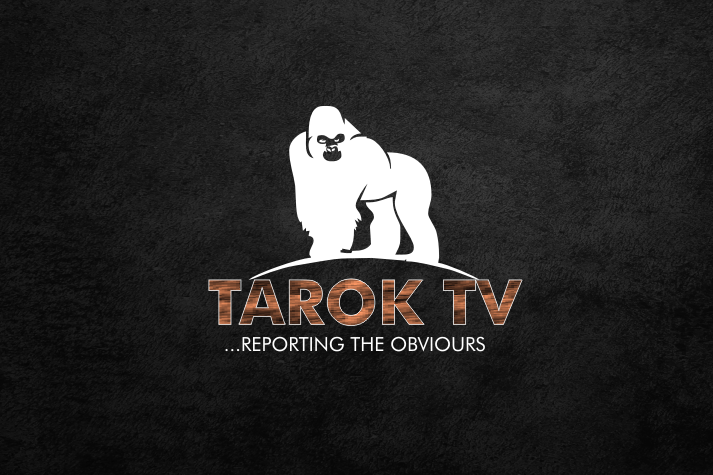
About Admin - Admin
TarokTv, ...Reporting the obvious.
Contact
Phone number: 07062319173
Email: officialtaroktv@gmail.com
Reach out to us with any news or article.
leave a comment
12 comments
Latest Articles
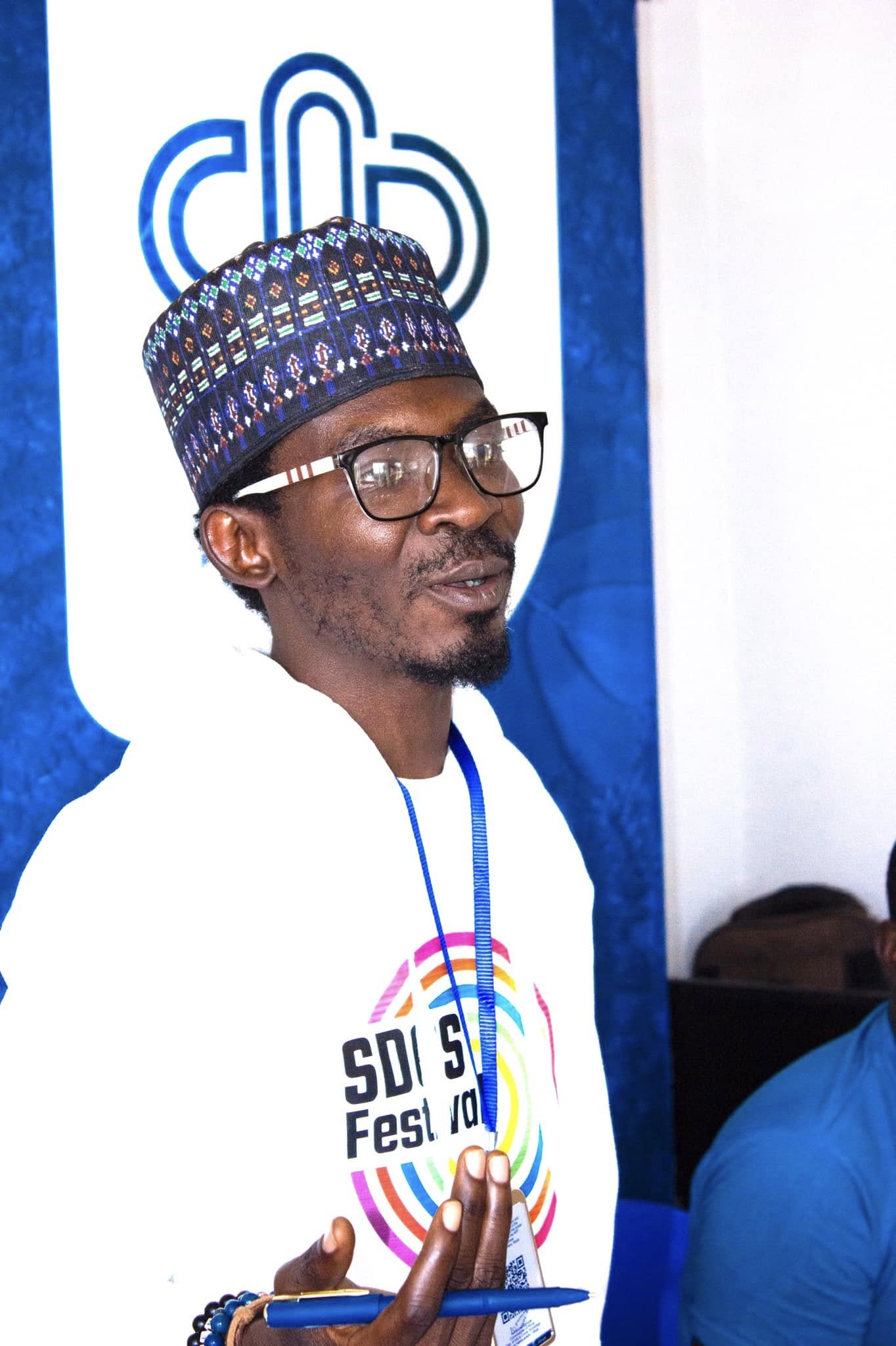
Success leaves clues, and those who seek to make a difference must study the lives of those who…
read more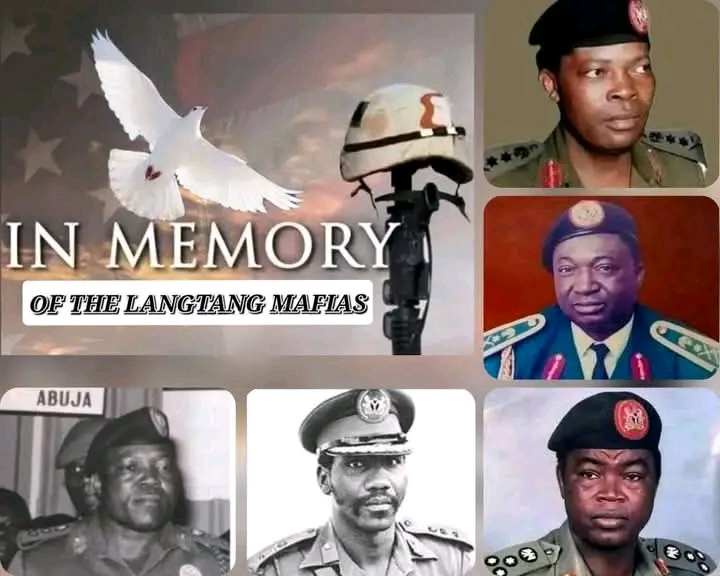
Langtang, a town in Plateau State, Nigeria, is not just another dot on the map but a significant origin for…
read more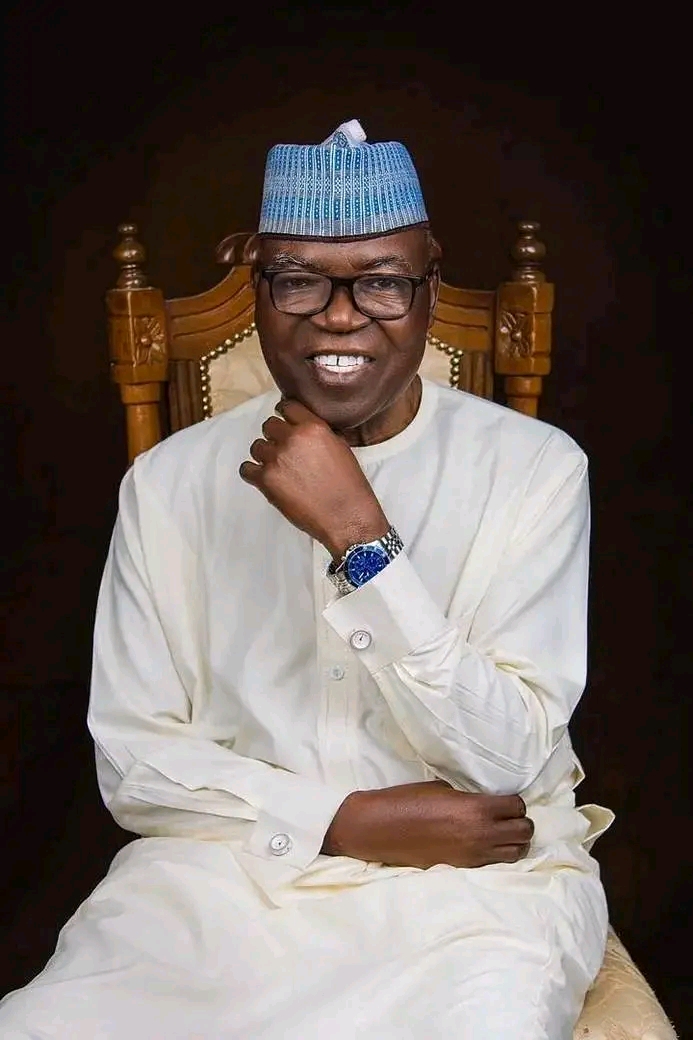
Brief Biography of Gen. (Senator) Jeremiah Timbut Useni
Early Life and Education:
Jeremiah Timbut Useni, often referred to as "Jerry Boy," was born on February 16, 1943,…
read more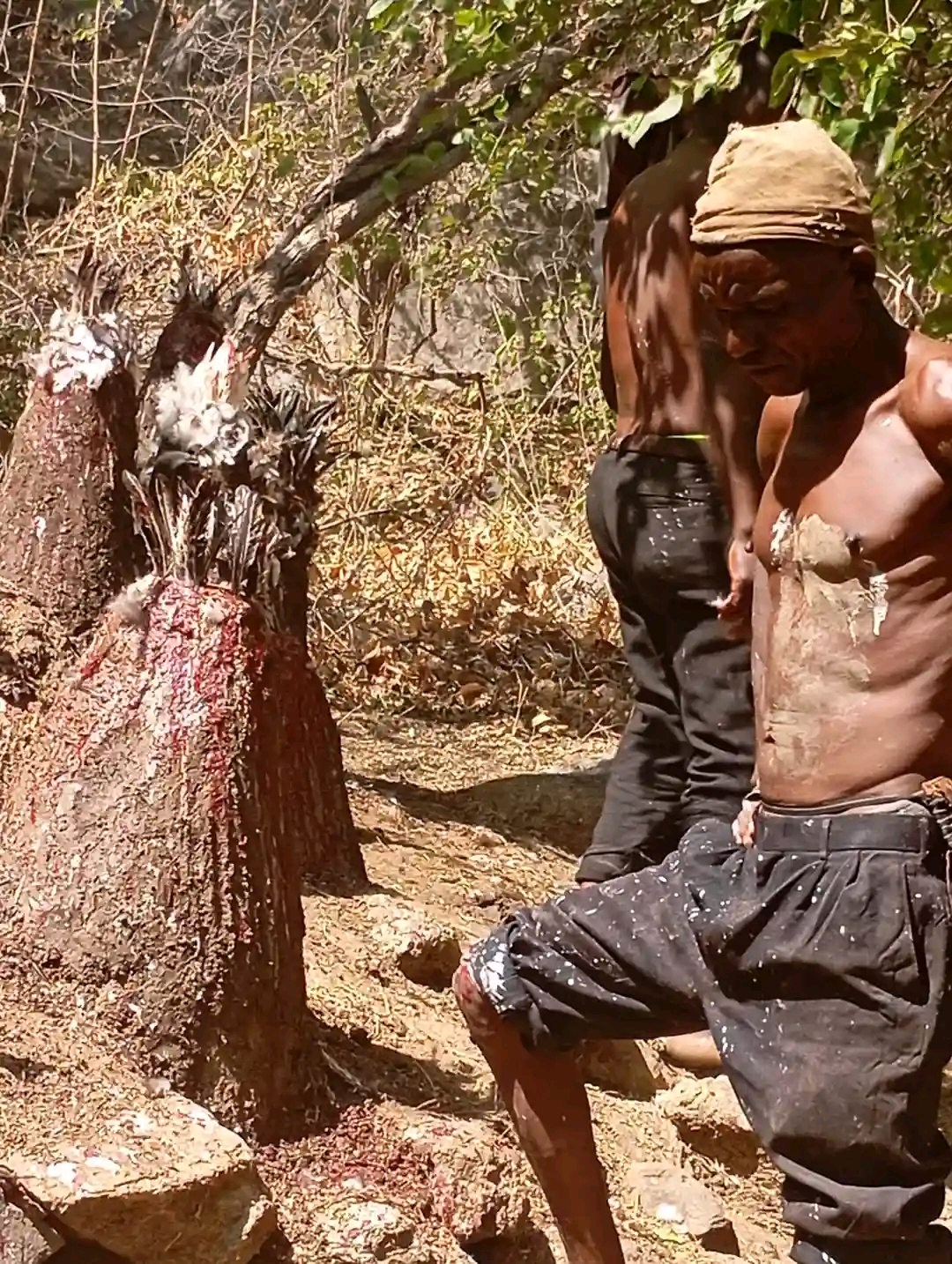
The Ibiari: A Sacred Tradition in Tarok land
The Ibiari Oga Sa festival, an annual tradition in Tarokland, was celebrated today as part of the year-end observance marking…
read more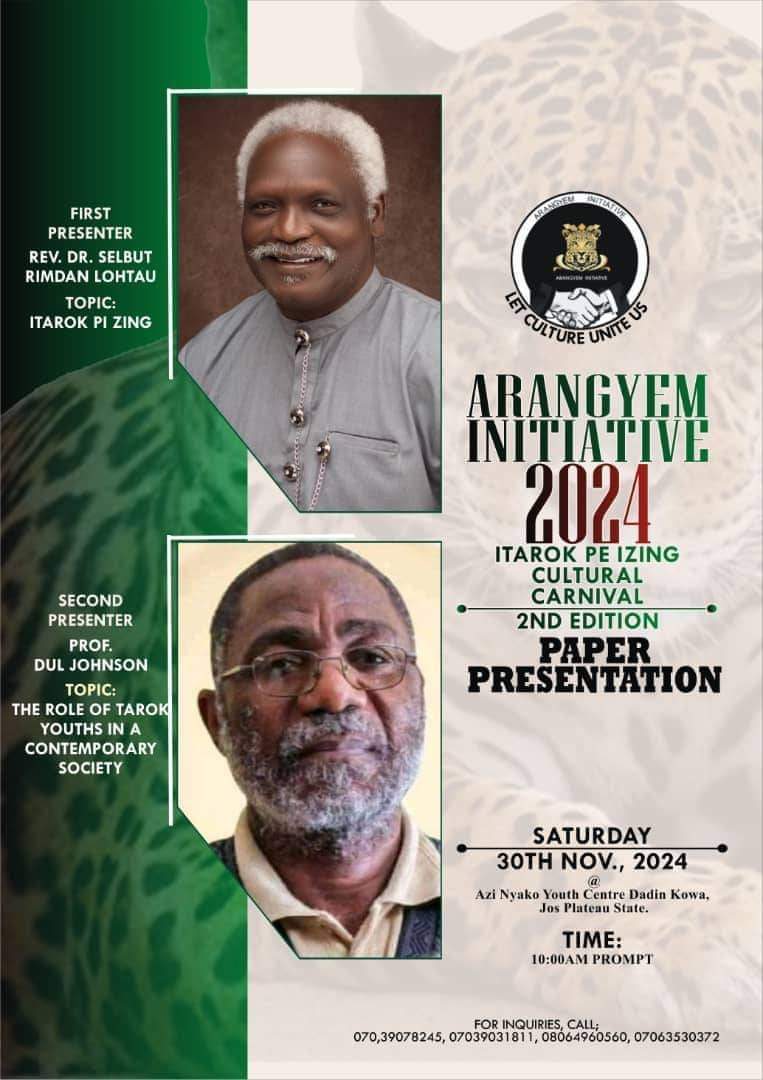
ITAROK PA IZING BY REV. DR. SELBUT LONGTAU
A PAPER PRESENTATION AT ITAROK PA IZING 2ND CARNIVAL HELD AT THE AZI NYAKO YOUTH CENTRE, JOS, 30TH NOVEMBER, 2024
… read more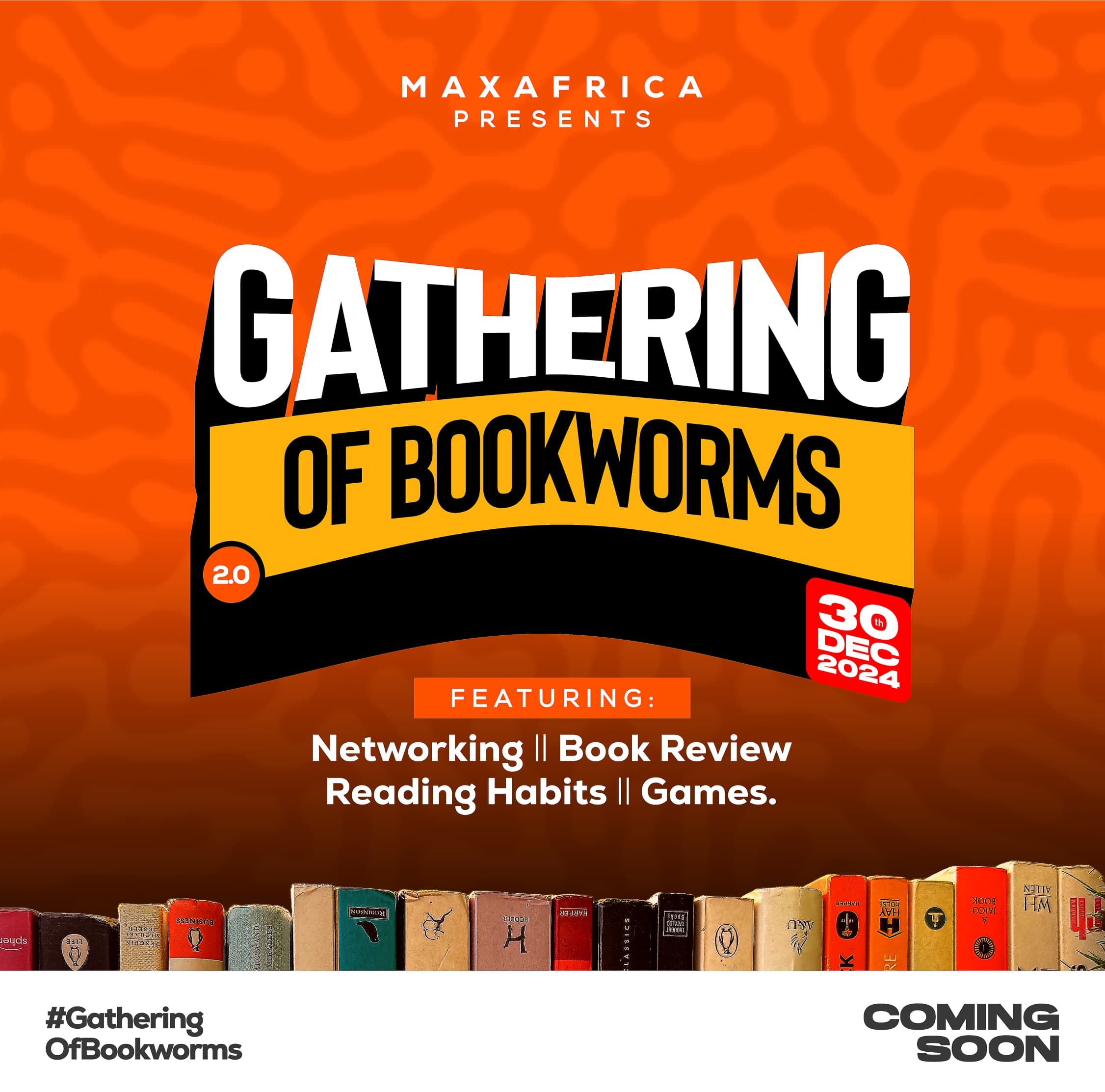
TarokTv News: The Return of "Gathering of Bookworms" - A Literary Revival in Langtang North/South
TarokTv is thrilled to announce the upcoming edition of the Gathering of Bookworms, a celebrated event aimed at uniting the…
read moreLatest Albums
Recent videos
Copyright © 2020 - 2025 TarokTv designed by Taroktv Media.


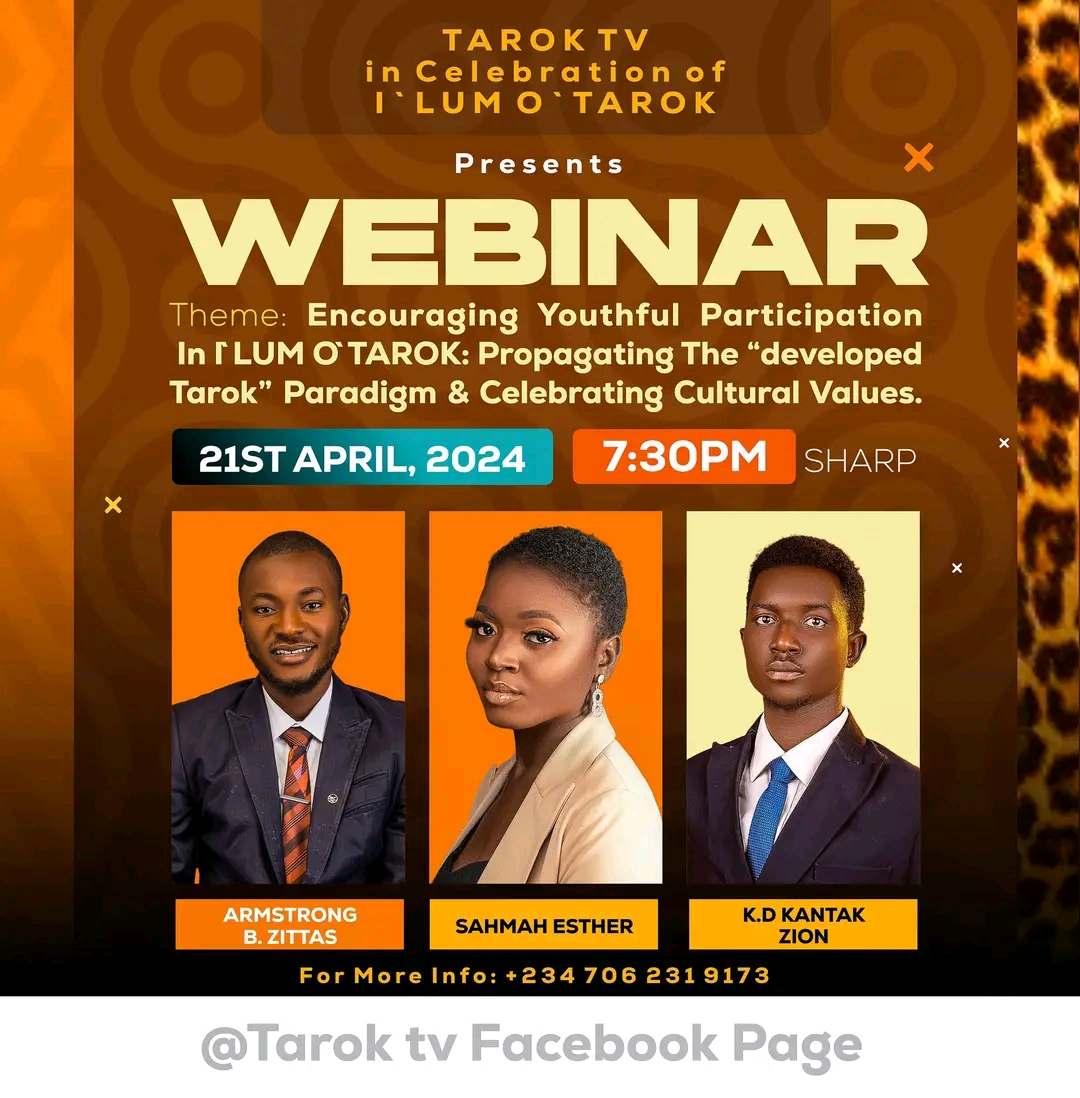
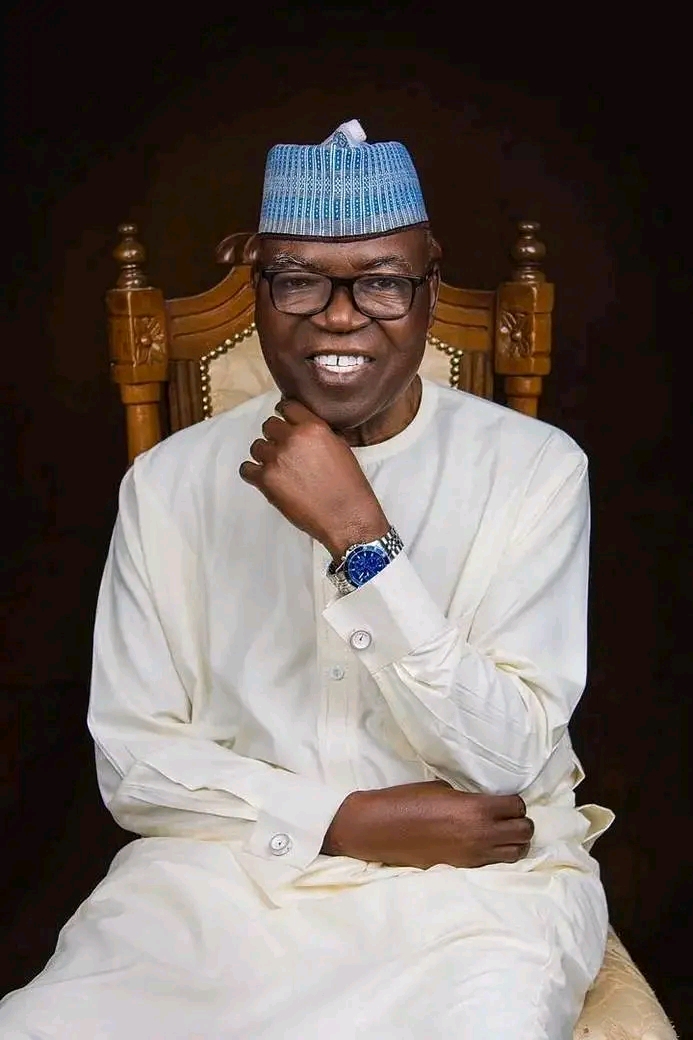
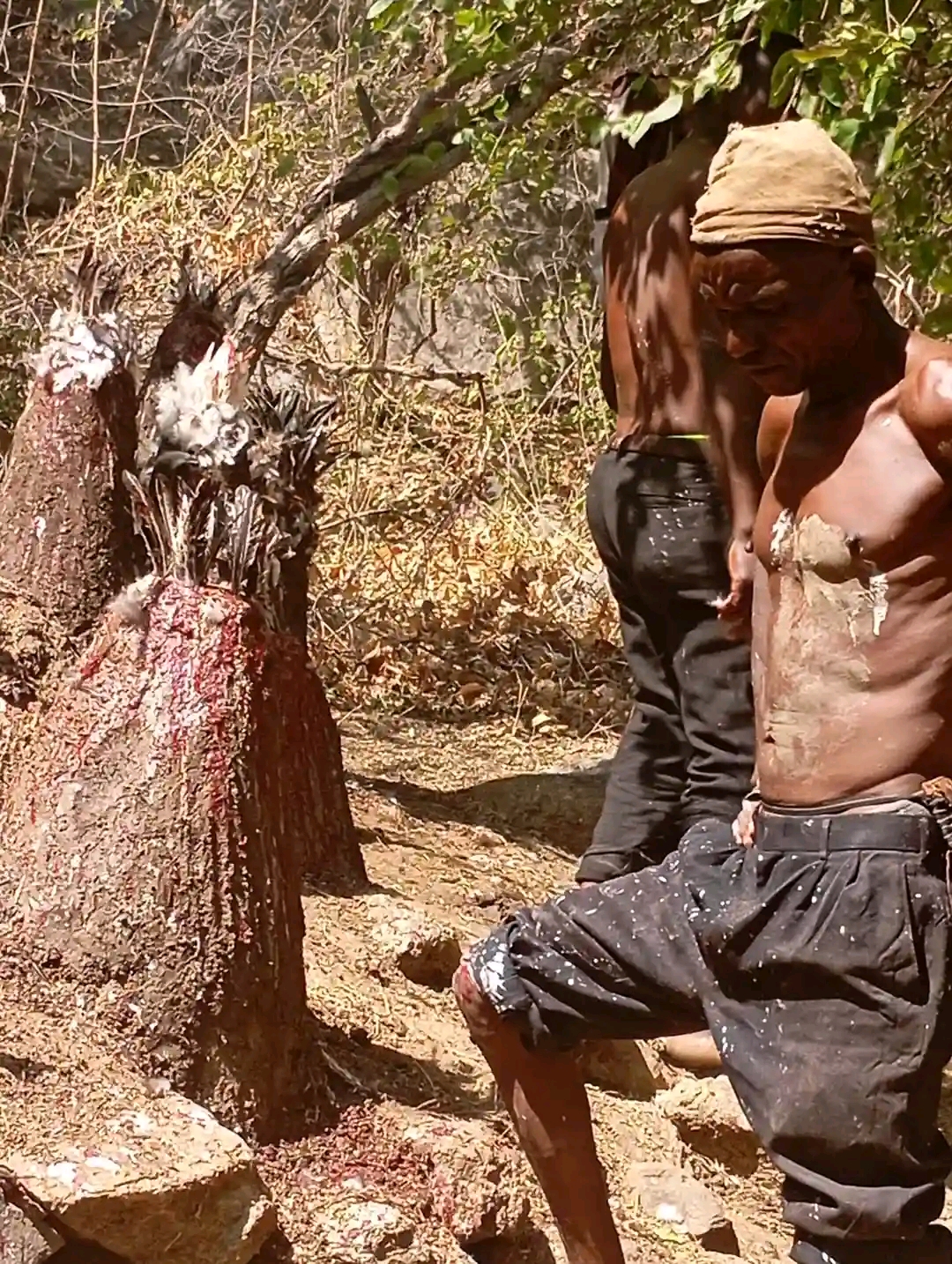
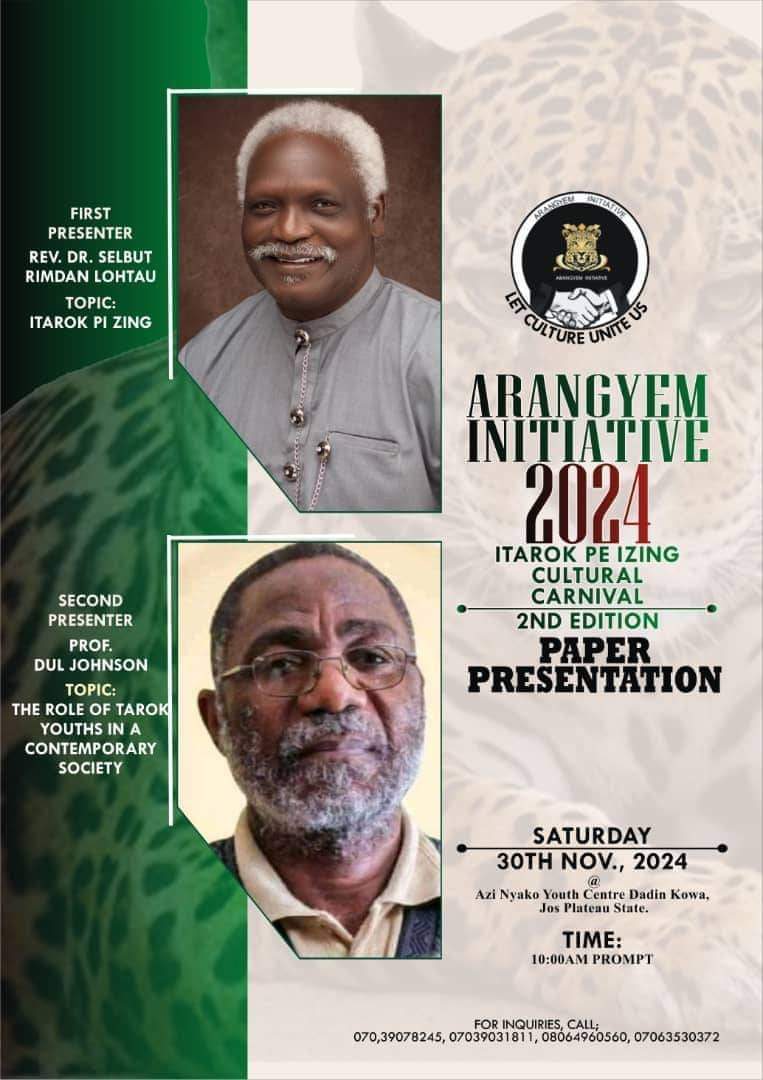
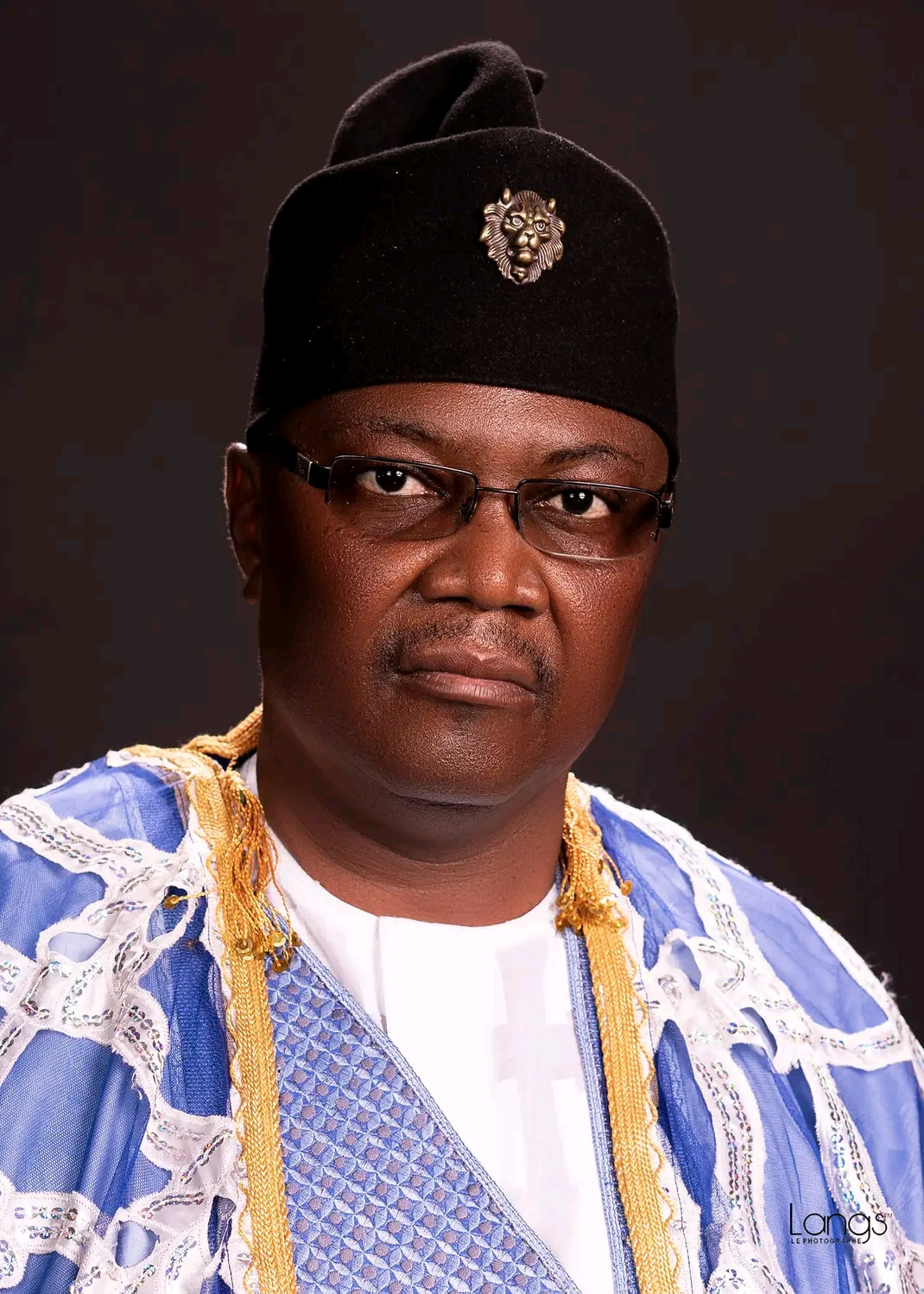

The knowledge I got from this presentation is worth saving for my children children. Ndinchi